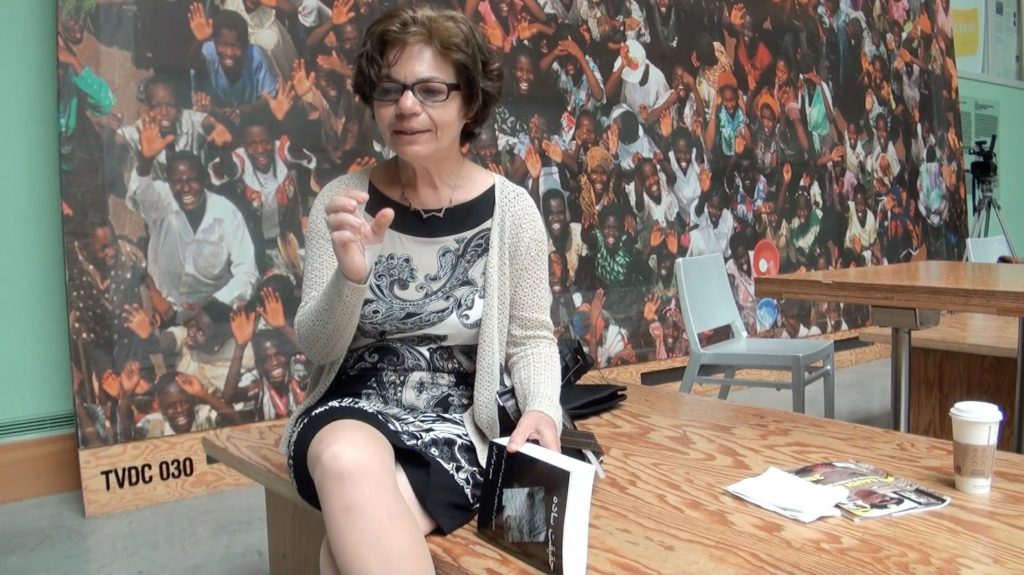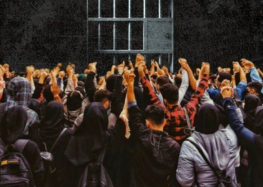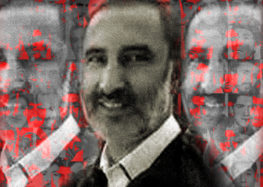Former Political Prisoner: Ruling Elite “Preventing Justice” by Supporting Raisi’s Presidential Bid

Iranian presidential candidate Ebrahim Raisi, who served on a special committee in 1988 that implemented the executions of thousands of political prisoners, is “a symbol of the crimes committed by the Islamic Republic,” a former political prisoner told the Center for Human Rights in Iran (CHRI).
“To see he’s a candidate for president is very bitter for someone like me, who was a prisoner in the summer of 1988,” said Monireh Baradaran, who now lives in Germany.
Baradaran was a member of the Marxist Rahe Karegar (Worker’s Path) organization when she was arrested in Iran in September 1981. She was released in 1988, but her brother, Mehdi, was executed on December 6, 1981 for his political beliefs.
“Raisi is someone who was clearly and directly involved in crimes and is a thorn in the eyes of those who seek justice,” she said. “But the entire ruling establishment is preventing justice.”
Raisi, who was appointed by Supreme Leader Ali Khamenei in March 2016 as the custodian of the very wealthy Astan Quds Razavi, a religious and commercial conglomerate based in Mashhad, is seen as current President Hassan Rouhani’s main rival on May 19.
Since the 56-year-old announced his candidacy, his role in the 1988 massacre has come under intense scrutiny by human rights activists.
As the young deputy prosecutor of Tehran in 1988, Raisi was appointed by the founder of the Islamic Republic, the late Ruhollah Khomeini, to a four-man committee that sent thousands of political prisoners to their deaths.
The prisoners, men, women and minors, had already been sentenced when they then faced the committee that decided whether they would live or die based on their perceived loyalty to the Islamic Republic.
“Raisi’s crimes are not limited to the summer of 1988,” Baradaran told CHRI. “In the early 1980s he was a prosecutor in Karaj where some of the worst and most awful interrogations took place in prison. That’s where Raisi started to climb the ladder to higher positions.”
“In 1988, he signed the death sentences of thousands of prisoners as a member of the ‘Death Committee,” she added. “There’s even talk that he could replace Khamenei as supreme leader.”
Baradaran recounted her prison experiences in her memoirs.
“In my first court session I was accused of reading (opposition) newspapers and taking part in demonstrations (against the state),” she wrote. “I wanted to say a few words in my defense, but the judge cut me off. That was it. It was all over in a few minutes. A few weeks later I was given three years in prison. I was lucky. God knows how many thousands this judge had sent to their deaths simply in a matter of minutes.”
“I was not freed after three years,” she added. “Instead, I was tried again in the same empty room in Evin Prison. It was just me and the judge, but this time the indictment was long. Everything I had done, and not done, were listed as crimes. I was really scared. Was I going to be executed?”
She continued: “A few weeks later I was given a 10-year prison sentence. This time I was really lucky. I stayed in prison until 1988. They executed many of the Mojahed women (members of the Mojahedin-e Khalgh) in our ward, but not the communist women. That year it was decided that the punishment for women ‘apostates’ would be flogging. That’s the sentence we were given when they took us to court. But my turn and many others’ never came. Luck was on my side.”
In August 2016, Ahmad Montazeri, the son of the late Hossein Ali Montazeri, posted a 40-minute audio recording online of his father condemning Raisi and the other members of the committee: then-Judge Hosseinali Nayeri, then-Tehran Prosecutor Morteza Eshraghi, and the Intelligence Ministry’s representative in Evin Prison at the time, Mostafa Pourmohammadi.
“I believe this is the greatest crime committed in the Islamic Republic… and history will condemn us for it,” the once heir apparent to Khomeini, the country’s first supreme leader, is heard saying. “This action has been carried out by you, good and pious figures in the judicial administration.”
In November 2016 Ahmad Montazeri was issued a six-year prison sentence for publishing the audio file by the Special Court for the Clergy in Qom, which Raisi headed as lead prosecutor at the time.
“(Raisi’s) direct and undeniable participation in the massacres in the summer of 1988 is very important,” said Ahmad Montazeri in an interview with CHRI in April 2017.
“If any of the candidates had attacked a person with a knife, he would have had a criminal record and would not get clearance from the authorities, never mind Mr. Raisi, whose record is very clear,” he added.
In a statement issued on April 14, CHRI condemned Raisi’s presidential bid.
“A man who should be on trial for the most heinous crime in contemporary Iranian history, is instead seeking the presidency,” said executive director Hadi Ghaemi.
“Allowing him to run for president is yet another grievous wound for the families who unjustly lost their loved ones in 1988,” he added.






